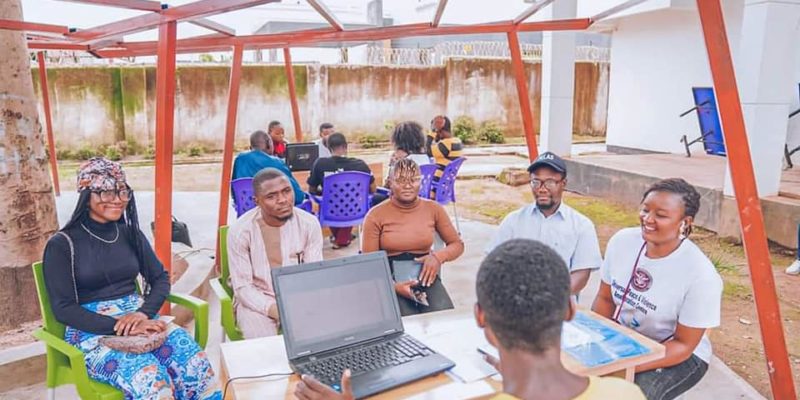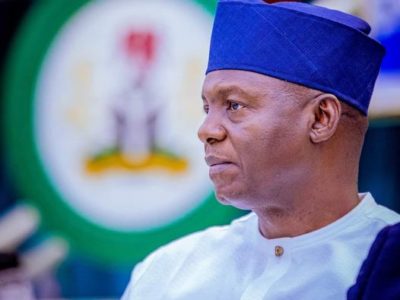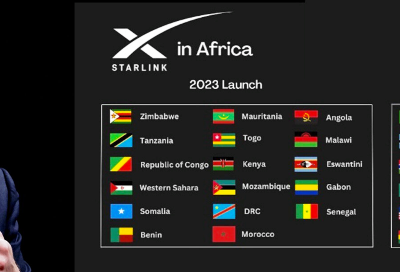Matters eRising with Olusegun Oruame
Some of the fundamental challenges faced by countries in the last few decades have centred on empowering young people, creating jobs and extending new opportunities to that extremely large and critical part of the population: the youths.
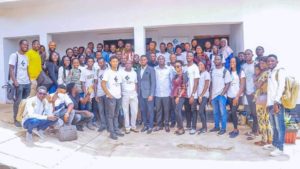
Nigeria has one of the largest youth populations globally, which ordinarily should be an asset but this has not been the case. The country is saddled with young people, some educated, some lacking exposure to basic education but all lacking skillsets to be active in the new economy.
RELATED: PICTDA: Lalong’s vision to foster Plateau on youth, technology and politics
As is elsewhere in most developing economies, young people constitute a higher percentage of the population in Nigeria hovering around 151 million of the current population estimate of over 220 million or about 217 million to go by the estimate of ‘Worldometer.’
The youths constitute 70% of the population and 42% of the 70% are under the age of 16 meaning that Nigeria will have a very young population to nurture for the next two decades or so.
However, a mix of wrong policies and absence of clear-cut plans for empowerment of young people have led to lost opportunities to harness this virile segment of the population for sustainable development.
“The increasing tendency by state-owned ICT agencies to go begging for financial support from the NITDA is both unhealthy and counter-productive. It simply exposes their plastic nature. Rather than build people, they have become vain-missions.”
So what we have today is a frightening reality. About 40% of our young population are “jobless; angry, and restless,” to quote the President of the Africa Development Bank (AfDB), Dr. Akinwumi Adesina in a report early this year.
The official unemployment rate in Nigeria is usually put at 33%, and has recorded a constant increase in the last five years so that majority of young Nigerians are jobless and even worse still, not employable, They lack the skills required in today’s workplace; they are virtually not exposed to entrepreneurship discipline and that vacuum has been filled up by inordinate desire for easy, quick wealth fueled by a political leadership lacking in morals and transiting from one level of decadence to another.
Capacity building as mere political preachments
Since the return to democracy in 1999, every federal and state administration has chosen the mantra of capacity building for young people as political preachments. Whether in the south or north, every administration has chosen to empower young people without clear-cut pathways to ensure impact and sustainability or to even reflect the core needs of the beneficiaries of those empowerment initiatives.
Billions have been sunk into white elephants nationwide. Those misguided schemes of creating young farmers; transport industrialists; and even digital entrepreneurs among several others – all of which are now in the morgue; poor visions haunted by shoddy implementation to their graves.


But I am more concern about the increasing shift by governments to digital capacity building and the lore to explore opportunities in the digital economy for millions of Nigerian youths.
Virtually, all the state governments have some level of policy thrusts and initiatives centred around digital skill building in young people but a critical scrutiny will show that they are mere political statements lacking depth and not designed to be sustainable. Today, more than 25 states of Nigeria’s 36 states have ICT agencies, ICT directorates or even full fledge ICT ministries as is the case with Kebbi state.
But a closer look at them will reveal empty shells. Big houses, appearing laudable from outside; but inside you see emptiness. The agencies or directorates or ministries are underfunded and just mere appendages to the governors’ credentials of promoting ICT within their domains.
In the last five years or so that many of them have existed as statutory bodies, they have failed to achieve the core objectives of closing the digital or skill gaps; empowering young people to become functional to even become entrepreneurs in the digital economy.
Digital capacity building is an important agenda for any government in any nation and at whatever level, whether central (federal), states or local councils. The digital economy is no longer a phenomenon but a reality just like skill gaps that must be bridged.
Challenges for skill building are opportunities for Nigeria, others
Thousands of new digital jobs are created in the new economy almost every month and there is an increasing challenge to fill up those gaps. That is where India and some other Asian countries have fared so well but the gaps are not closing. They are increasing.
Nigeria and the rest of Africa are not alone in this dilemma. It is global challenge. In fact, the 2022 DESI (Digital Economy and Society Index) report shows that only 54% of Europeans aged between 16 -74 have at least basic digital skills. It is the same in other highly advanced economies such as the USA, and the UK. The digital skills gap is widening and offers a fascinating opportunity for employment in the era of remote working. Even the International Finance Corporation (IFC) has predicted that some 230 million jobs in Sub-Saharan Africa will require some level of digital skills by 2030.
Unfortunately, Nigerian politicians are not seeing these opportunities. They have adopted digital empowerment as a weapon to whip up support from among young Nigerians while not concretely investing in it. One state in the south has used all of four years to build propaganda on how much of ICT it has leveraged to support young people and another in the north has showcased an ICT centre often covered in dust but made clean whenever that state wants to showcase how much of ICT it has incorporated into building a new generation of highly skilled young people.
“PICTDA has taught that even across states where funding either don’t exist or is too marginal, it is possible to leverage cross-sector collaborations, innovate to build people and build a nation.”
The results have proven otherwise; to put it mildly, extremely shallow. ICT penetration or the prevalence of digital skills among young people has remained terribly low. The low level of digital literacy has not changed for good in the last five years. Nothing concrete has been achieved in terms of improving the “capacity of young people to not only use and understand technology, but also to increasingly create and share digital content, building knowledge and solving problems and using digital technology.”
The question really is: what motivated the creation of these statutory ICT agencies or directorates in the first place? The answer is as good as your guess. For obvious reason, Lagos state leads all other states in terms of digital empowerment of young people, majorly helped by the large presence of private sector offshore investors who have made Lagos the foremost destination for startup funding on the continent.
A workable training model at PICTDA, Plateau state
All of the things that have made Lagos unique and made the other states no good models for ICT capacity building are interestingly, the reason why Plateau state in central Nigeria appears to be making headway in digital skill development.
The Plateau Information and Communication Technology Development Agency (PICTDA) was created over four years ago as a statutory body. PICTDA has suffered underfunding like many other state-owned ICT agencies. It has had to resort to ingenuous means to promote its capacity building programme without tasking its trainees.
Its young Director General, Daser David, has brought youth and creativity to bear on solving a problem that has perpetually disorientated the older generation.
“When you measure the level of ICT skill training in the last five years among young people from low income homes in Jos, and how the acquired skill is gradually improving their economic with social wellbeing, you are encouraged to have faith that the future is truly youth and technology.”
PICTDA has modeled the sustainability of its programme on building a network of partners from among public and private actors to ensure steady though struggling stream of funding and post-training channels for workplace exposure and even hiring of trainees after the 8-month programme.
Somehow, the agency has been able to gain significant traction with its Code Plateau Initiative designed to enhance digital inclusion and skill-building. Code Plateau is building an army of developers, coders and preparing young people to be able to leverage global IT opportunities. From Code Plateau 1.0, the programme has evolved to Code Plateau 5.0 with a commendable number of young people skilled or upskilled in software development and a broad spectrum of fields ranging from artificial intelligence, robotics, and blockchain to digital marketing amongst others.
In less than 48 months, hundreds of youths have been exposed to soft skills that include critical thinking/problem solving; attention to detail; communication; leadership; and teamwork: the essential elements of becoming functional in a modern economy beyond mere acquisition of digital skills.
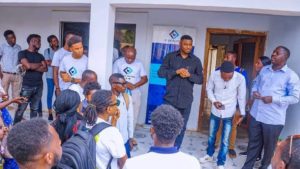

The results have been outstanding. Interest in ICT as a career or as a tool for problem solving has grown on the Plateau among a huge number of youths. Local governments have genuinely keyed into being part of the transformational essence of ICT and today, Plateau state remains the only state where a local government council (Qua’an Pan LGA) has successfully built its own ICT resource centre.
Funding with state government support is critical to sustaining digital agenda. But PICTDA has demonstrated that public administrators must be willing to think outside of the box to address the inherent challenge of funding to still manage their original visions to results.
When you measure the level of ICT uptake and skill training in the last five years notably among young people from low income homes in Jos, and how the acquired skill is gradually improving their economic with social wellbeing, you are encouraged to have faith that the future is truly youth and technology.
“PICTDA has modeled the sustainability of its programme on building a network of partners from among public and private actors to ensure steady though struggling stream of funding.”
The increasing tendency by state-owned ICT agencies to go begging for financial support from the National Information Technology Development Agency (NITDA), a federal entity with its own challenges, is both unhealthy and counter-productive. It simply exposes their plastic nature. Rather than build people, they have become vain-missions.
With hundreds of young Nigerians already becoming fellows of Code Plateau, Governor Simon Lalong has quietly earned himself a place in tomorrow’s universe of young people as a chief executive who did not use digital capacity building as an offensive sing-song but an item of core human capacity development.
In this 2013 thesis: ‘Integrating ICT in Re-Branding Nigerian Youths for Constructive Empowerment and Mental Reengineering,’ Udoka Felista Eze notes:
“There is need to reposition our youth’s mental reasoning and economically empower them in order to certify the demands of the modern world…. Nigeria [must join] the rest of the world in deploying ICT to ensure easy and quick enlightenment and empowerment of its populace.”
More than anything else, PICTDA has taught that even across states where funding either don’t exist or is too marginal, it is possible to leverage cross-sector collaborations, innovate to build people and build a nation. It happened in Jos; on the Plateau.


